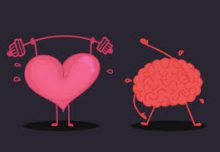 September is Alzheimer’s Awareness Month, so we’re going to be sharing four posts that will help everyone with what we have seen to be the most important information about dementia in general and Alzheimer’s specifically. Our title here offers the “Four D’s” which provide a great starting point for understanding the medical condition that a majority of Americans fear more than death.
September is Alzheimer’s Awareness Month, so we’re going to be sharing four posts that will help everyone with what we have seen to be the most important information about dementia in general and Alzheimer’s specifically. Our title here offers the “Four D’s” which provide a great starting point for understanding the medical condition that a majority of Americans fear more than death.
Dementia. It’s a category that includes about 100 specific cognitive conditions. Generally speaking, most dementias are diagnoses of exclusion. That’s medical talk for the fact that one narrows down what a person is manifesting by successive steps of eliminating other possible explanations for a behavior. Forgetting someone’s name is retrieval and it is not a warning sign of Alzheimer’s. Forgetting that you know the person at all, however, is a storage problem, and it can be a sign of a more serious brain issue. Misplacing the keys, according to the experts, can happen to just about anyone, but forgetting how to start the car and put it in gear should be cause for concern. If your loved one gets confused on the way back to your table from the restroom while dining out, that may be cause for concern. You should also look for smaller signs as basic as their stride. If their steps begin to more resemble a shuffle this may be a sign of a more fundamental uncertainty.
Distraction. Who isn’t distracted? We live in an age of “multi-tasking” and where all manner of digital interruptions happen all day and into the night. Some of them we invite like podcasts, news segments, and streaming. Others are a bit more insidious like the “phone” that we all carry with us so that we won’t miss a text, breaking news or a call from a friend…or spam. And then there are those who take their constant companion to bed to catch up on last items, posts or other “essential information.” Oh, and this last one has been proven to be disruptive of normal sleep by your device’s light itself…never mind the content. Many of us have become a digital juggling act and yet wonder why we forgot the reason we walked into the kitchen from the living room.
Delirium. Against all of the potential warning signs for possible dementia, be careful about a hasty judgment. A change in mental acuity that is rapid in its onset is better classified as a delirium – not dementia. These episodes can arise from urinary tract or other infections, dehydration or even some hormonal imbalances. Certain medications like steroids or combinations of medications can precipitate short term cognitive imbalances. And what your loved one’s neurologist prescribed for one condition may not mix well with what a cardiologist has prescribed. Be sure that there is a quarterback on your loved one’s medical team who knows what all the players are prescribing.
Depression. Older individuals run a constant risk of isolation and all the effects associated with insufficient stimulation and socialization as well as loss. Their social network has diminished leading to less cognitive stimulation and the loss of friends, loss of status and loss of opportunities to feel validation simply lead to a smaller and smaller world which can result in sedentary solitude. Loneliness can look a lot like dementia, but it’s depression and can be addressed.
Consider when your loved one last had a complete physical. By complete, we mean one in which all the medications they may have been taking are reconsidered. This is especially true if your loved one sees multiple providers each prescribing against the conditions in which they specialize; what the cardiologist prescribes may not “mix” well with what the neurologist or pulmonologist are prescribing. There may also be subtle cues that some have missed without a thorough exam that could include a neuropsychiatric evaluation or even something as basic as a hearing test. To read more on this subject, please check out our book…chapter 6.
Charlotte Bishop is an Aging Life Care Advisor, Geriatric Care Manager and founder of, certified professionals who are geriatric advocates, resources, counselors and friends to older adults and their families in metropolitan Chicago. She also is the co-author of How Do I Know You? A Caregiver’s Lifesaver for Dealing with Dementia.







